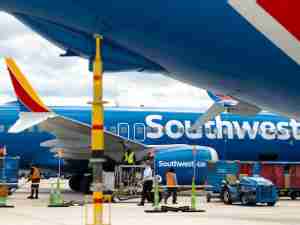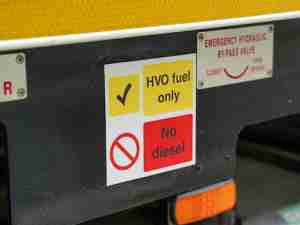Etihad CEO Defends Strategy as Airline Swells Wide-Body Fleet
By: | Feb 08 2017 at 05:52 AM | Air Cargo
Etihad Airways PJSC group chief James Hogan, who is standing down as the Gulf carrier grapples with losses at European partners, detailed growth plans for 2017 while defending his strategy as one that’s attracting passengers and is here to stay.
Etihad will add 12 wide-body aircraft, including two A380 superjumbos, swelling capacity in what will be “another challenging year,” the Abu-Dhabi-based carrier said in a statement Tuesday. That follows the addition of 10 planes in 2016, three of them A380s.
Hogan, due to leave in the second half, said in the release the aim is to expand “prudently and efficiently” in light of the prevailing economic environment, adding: “We remain optimistic and have every belief that our robust business model will succeed and, most importantly, stand the test of time.”
Etihad’s customer tally increased 6 percent last year to 18.5 million. Passenger traffic—the number of people carried times the distance flown—advanced 8 percent, just shy of the 9 percent hike in capacity, so that seat occupancy levels held steady at 79 percent.
The bigger challenge has been to shore up the so-called equity alliance of carriers in which Etihad holds minority stakes, with two companies, Air Berlin Plc and Alitalia SpA, continuing to bleed cash despite restructuring efforts. The German carrier is shrinking its operations, while Rome-based Alitalia is set to undergo another revamp.
The alliance, which last year had a combined 705 aircraft and 126.6 million passengers, remains a source of vital feeder traffic for Etihad, which in the Persian Gulf ranks behind Dubai-based Emirates and Qatar Airways by size. Equity and code-share partners delivered 5.5 million passengers to its flights during the year, an increase of 9 percent compared with 2015.
Hogan, a 60-year-old Australian, announced last month that he planned to stand down and was headed for an investment company located outside the United Arab Emirates and not linked to Etihad or its affiliates.
Etihad is meanwhile continuing with a review of its own size and shape and the equity holdings, though Chairman Mohamed Mubarak Fadhel Al Mazrouei has said it remains committed to the partnership strategy. The carrier last week announced a catering and maintenance deal with long-time rival Deutsche Lufthansa which the companies said could develop into a broader pact.
State-owned Etihad didn’t comment on its 2016 earnings, and typically publishes figures in April. The carrier had net income of $103 million in 2015, up from $73 million a year earlier, as its sales of $9 billion were swollen by $1.4 billion from customers delivered by its partners.









